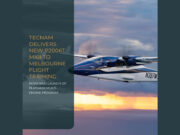
The aviation industry is probably the only field in which high cholesterol is more dangerous than speeding along at Mach 0.8, which is why it is crucial to develop good habits for your well-being. This is widely accepted and promoted in the aviation industry, but this concept applies to both physical and mental well-being. The swirling lifestyle with around-the-clock schedules, jet lags, and times spent away from home can become the perfect foundation for mental health challenges. The ensure your continued good mental health, follow these simple prescriptions.
Keep routines
Maintain control of your time by setting sound priorities which makes you feel better and keeps your energy in balance. Try to keep normal morning and evening routines as much as possible. If a morning run or an evening coffee are usual at home, try to do them when you are away. Routine is easy because of experience. Keeping easy routines when travelling will help to make you feel productive and give you a sense of purpose. However, it takes work to keep to routines on a trip. Effective routines should be a mix of both mental and physical activities, like:
• Write down small personal goals for the day
• Work out
• Read
• Take a hike
• Write
Stop worrying
Worrying is mentally exhausting and does not help you arrive at solutions. It will lead to more anxiousness and stress causing negative thought patterns. When you notice these adverse thoughts creeping in, actively search for a distraction. Call a friend or family, meet up with a colleague, or go out to explore the environs. Working out is a good way to divert overthinking and focus on the here-and-now while you gain energy.
When you find yourself with things that are worrying you too much, create “worry time” for 15 minutes a day. Research has shown that this strengthens your mental health. Worry in a private place or while doing an activity. Set an alarm for 15 minutes, preferably not just before bed time. Let the negative thoughts come up and think about the worst case scenarios. Keep worrying until the alarm goes off, and move on to more productive tasks. It will not stop the negative thoughts completely, but it will help you compartmentalize the thoughts. When the thoughts come up outside the time frame, make a mental note that this is not the time to worry.
Keep learning
On layovers, there might be time to kill. A perfect way to start the day on a layover, is to take 20 minutes every morning to learn something. It doesn’t have to be a lot – not like a completely new master’s degree or learning to play a musical instrument. Reading is the most effective and efficient approach to continuous learning. Books, newspapers, blogs or articles that spark motivation will help keep you reading. Doing so over a cup of coffee or tea makes it even more enjoyable. Make learning a traveling habit. Bringing along a book or other reading material will make it easier to start. Consider it as quality time to invest in yourself.
Enjoy the ride
Happiness, like a muscle, can be trained. This is not an inspirational quote by some famous writer, it is simply the truth. By working on personal growth and a better lifestyle, we can boost our inner state of happiness. Essential for the increase of happiness are increasing self-confidence, appreciation and communication skills. In addition, research shows that strengthening positive qualities, such as gratitude and optimism, decreases psychological problems and even increases resilience.
• Keep track of personal successes by writing them down in a notebook. For example, at the end of the day, write down three events, proud moments or valuable encounters for which you are thankful.
• Compliment others frequently to let them know you appreciate them. This will make them feel better, which will have a rebounding positive effect on you.
• Share through social media. This has the same effect as writing them down in a notebook. In addition, this will benefit the communication game, which will be much appreciated by your loved ones back home.
Give yourself a break
Take some time off and relax. Do not forget to reserve time for enjoyable things that come along on the road and experience them consciously. Resist the personal auto-pilot.


























































































































